It was early January, I had just finished an evening tennis game when, to my surprise, I got a video call from Irena, a Member of the European Parliament, and Jasna, her local assistant: “Žiga, welcome to Team Joveva”.
And my first thought was: “Do MEPs ever take a break?”
My first day in Brussels. Assistant Žana meets me in front of the European Parliament, because I certainly couldn’t have found the entrance to Parliament, which is a real labyrinth. After wandering through it for about ten minutes, we finally reach the office. It is spacious and modern, the conditions are ideal; this really is a good place to work and a place to do good work, I think to myself. On my desk, I am surprised by a pile of gifts and a welcome message – I already feel at home!
Well, not so fast, Žiga. I received a calendar of events, meetings, appointments and was in charge of the first “briefing”… Oops, this is a bit different from what I imagined. Lots of institutional jargon, unfamiliar acronyms, “political” speak – i.e. using figurative language, referring to older projects I had never heard of before. Reality gave me a much-needed slap in the face.
The Parliament has a convenient canteen where I usually went for lunch with other assistants or trainees from other political groups or countries. They smilingly confirmed to me that I was not the only one at sixes and sevens, to say the least. One of the Slovenian assistants candidly admitted that he had been in the Parliament for two years and still hadn’t managed to put all the pieces of the European institutional politics together, and in all likelihood never would. The European Parliament truly is complex, and it is precisely this complexity that gives it the special charm that is difficult to put into words.
Many people ask me what I will remember most.
Certainly the young, diverse, but nevertheless incredibly coordinated and above all interesting team of Irena’s assistants. Rok. One of the smartest people I have ever met, a walking encyclopaedia. Elma. A polyglot with superb networking skills (in my humble estimate she knows 90% of the EP), the epitome of kindness, and a heart as big as Mount Triglav. Žana. Slightly quieter in nature, but you know the proverb that still waters run deep. On a number of occasions, she had regulations, directives and acts that were all Greek to me right at her fingertips.
Furthermore, I could finally shake off the stereotypical prejudice that all politicians are corrupt, that all they do is talk and, above all, that they get nothing done. Really the vast majority of MEPs (and other staff in the EU institutions) are big-hearted, work late into the night and bring about gigantic shifts which, unfortunately, are not recognised and appreciated enough by Slovenian politicians, the media and, consequently, the people.
For all of you who are still to embark on a similar journey, the journey of a trainee in the European institutions, here is some useful and honest advice:
- Don’t hesitate to ask. Nobody knows everything. There are no stupid questions, just don’t be ashamed.
- Be proactive. Never miss an opportunity to attend meetings, conferences and work-related events. It’s a great way to learn about the culture and to network.
- Build a strong network. A traineeship is an excellent opportunity to meet people and build a strong network that will definitely prove useful in the future. Participate in conferences, have the occasional coffee with colleagues or other trainees, enjoy activities outside work with complete strangers (who can later become great friends) or simply try to find the right connections with whom you can talk about projects that interest you.
The most important advice: Step outside your comfort zone, relax and enjoy the ride.
I’m sitting on the plane thinking – as probably all trainees do on their way home from the capital of Europe: “What next?”
– Žiga Papež

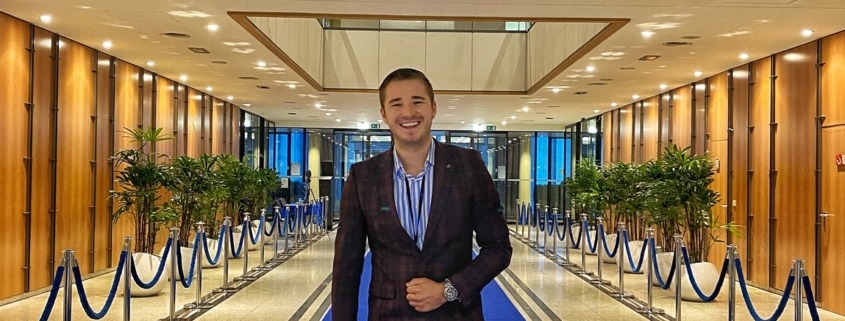
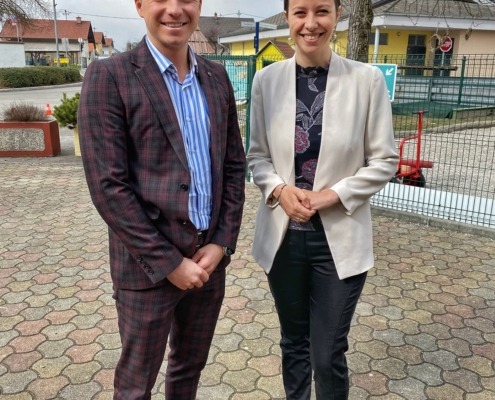
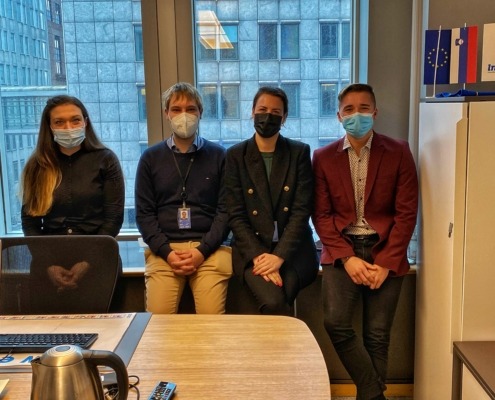
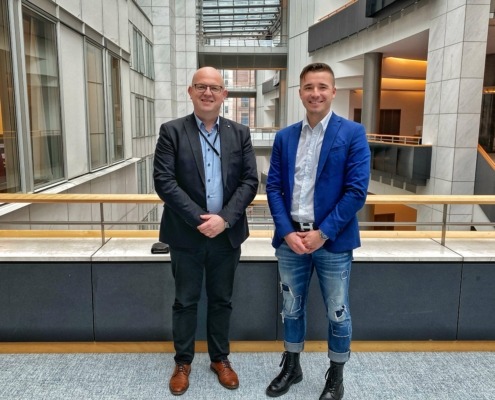
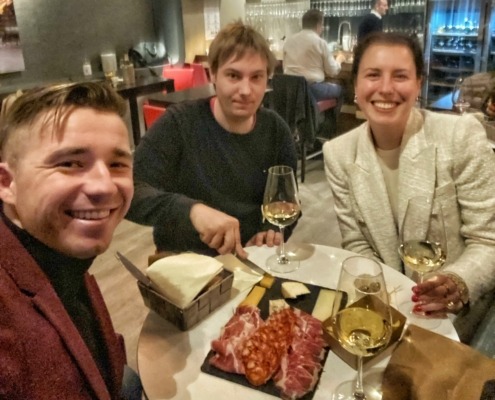


Leave a Reply
Want to join the discussion?Feel free to contribute!